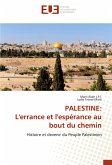Hamas appeared in Gaza as the Palestinian branch of the Egyptian Muslim Brotherhood, initially focusing its activity on dawa and social work. With the outbreak of the First Intifada, in 1987, came the militarization of the movement and its transformation into the Harakat al-Muq wamah al- Isl miyyah (Islamic Resistance Movement), who sought to challenge the dominance of the PLO and lead the armed struggle against Israel. After nearly twenty years of social engagement in Gaza and military influence in the Palestinian-Israeli relations, the Resistance's victory in the 2006 legislative elections can be considered one of the most significant turning points in its political trajectory. With its institutionalization, Hamas was faced with the challenge of having to adjust its ideological and military aspirations to a shifting political environment, in order to appeal to a larger constituency and boost its legitimacy. Consequently, if on one hand, the Resistance has repeatedly demonstrated rigidity within its guidelines and belief system, on the other, it has also shown clear signs of political flexibility, causing its political and violent demeanor to vary over time. In this context, the goal of the present study is to determine if the changes in Hamas s rhetoric and displays of violence relate - and if yes, how?
Bitte wählen Sie Ihr Anliegen aus.
Rechnungen
Retourenschein anfordern
Bestellstatus
Storno








